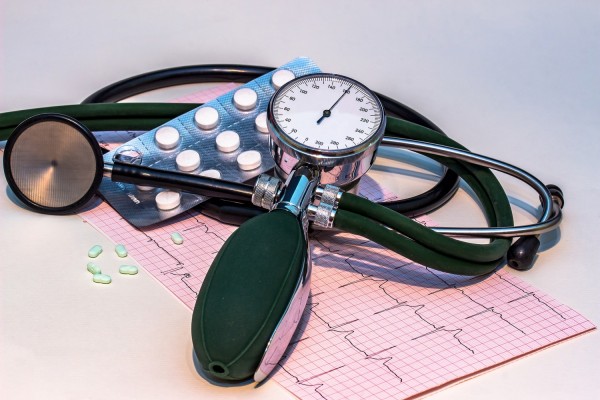Stroke: How it Happens and How to Stop it From Happening

People with high blood pressure have a higher risk of getting Stroke
Face drooping, arm weakness, and inaudible speech. These are the symptoms of Stroke that can occur at any time or at any moment. According to the American Stroke Association, Stroke is the fifth cause of death and disability among Americans. Data from the Stroke Center shows that More than 140 thousand Americans die of Stroke annually, and about 795 thousand suffer from Stroke each year. Six hundred thousand of these are first attacks, and 185 thousand are recurrent attacks.
The American Stroke Association, defined Stroke as a disease that affects the arteries leading to the brain. It happens when blood that carries oxygen and nutrient for the brain gets blocked by a clot, or ruptures causing the brain to not get the supply of nutrients it needs, resulting in brain cells' death. According to Mayo Clinic, a stroke is a medical emergency, and prompt treatment is essential. In an interview with WTKR, Dr. Carolyn Brockington, Stroke Center Director at Mount Sinai St. Luke's and Mount Sinai West Hospital in New York City, said that clinical research has shown that up to 80 percent of Stroke can be prevented.
ALSO READ: Small Doses of Edoxaban Reduces Stroke Risk in Elderly Patients, Says Study
Causes of Stroke
Brockington said that hypertension or high blood pressure is the number one reason people have both Stroke and heart disease. She added that when an individual found out that he/she has hypertension, they need to do something about it their whole life. According to the National Aphasia Association, risk factors of Stroke include lifestyle factors such as weight, diet, and physical diet.
According to the American Stroke Association, normal blood pressure is 120 over 80. They added that regular exercise and a diet filled with vegetables and fruits regular sleep could maintain healthy blood pressure. This means that people with unhealthy blood pressure or hypertension have a higher risk of having a Stroke.
Types of Stroke
According to the Mayo Clinic, there are three types of Stroke. Hemorrhagic Stroke, Transient Ischemic Attack, and Ischemic Stroke. Mayo clinic identified Ischemic Stroke, and it happens when the brain's blood vessels get narrowed or blocked, causing the lack of nutrients going into the brain or blood flow. The narrowing of blood vessels is because of blood clots or fat build up in the blood vessels' walls.
Hemorrhagic Stroke, on the other hand, according to the Centers for Disease Control and Prevention (CDC), happens when an artery in the brain ruptures or breaks open then the leaked blood in the brain puts too much pressure on brain cells, which damages them. CDC also mentioned the two types of hemorrhagic stroke: Intracerebral that occurs when an artery bursts and flood the surrounding tissue with blood, and Subarachnoid happens when there is bleeding between tissues that cover the brain and the brain itself.
American Stroke Association defined Transient Ischemic Attack (TIA) as a warning stroke or mini-stroke because their symptoms only last for a few minutes up to 24 hours before disappearing. It is an indication that a full-blown stroke may happen and should be taken seriously. A clot or blockage causes them in the brain, but it dissolves on its own and extricates.
READ ALSO: Artificial Intelligence Can Detect Brain Blockages and Reduce Time to Treatment
How to Prevent Stroke from Occurring
Besides taking care of your blood pressure, diet, and exercise Stroke Recovery Foundation said that there are 11 pillars to prevent Stroke from occurring or happening again.
- Having an annual physical exam and consultation with your doctor,
- Taking control of your blood pressure,
- Eating less,
- Exercising,
- Losing weight,
- Stop smoking
- Drinking in moderation
- Considering carotid artery screening
- Controlling diabetes (if this is an issue)
- Attending Atrial Fibrillation
- Taking prescribed medications
Taking precautions against Stroke will be very helpful, especially when you already had it once. Watching your diet and practicing these 11 pillars from the Stroke Recovery Foundation will help you be armed against the disease and extend your life and enjoy the most of it with your loved ones.
READ NEXT: A New Study Reveals Amniotic Fluid That May Produce Better Therapeutic option for Ischemic Stroke
Check out more news and information on Stroke on MD News Daily.
Nov 02, 2020 09:00 AM EST





